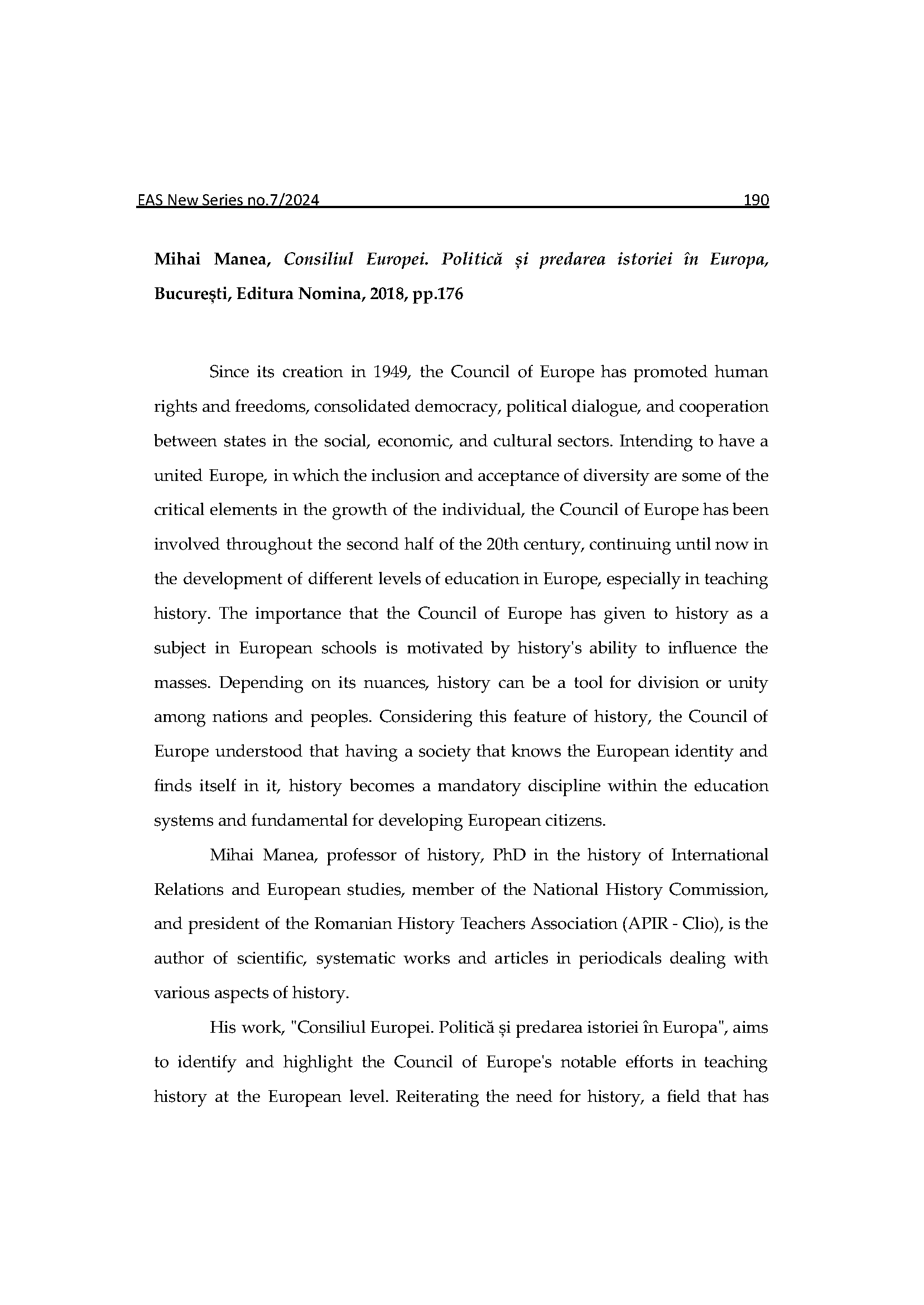Mihai Manea, Consiliul Europei. Politică și predarea istoriei în Europa,
București, Editura Nomina, 2018, pp.176
DOI:
https://doi.org/10.31178/eas.2024.7.8Abstract
Since its creation in 1949, the Council of Europe has promoted human rights and freedoms, consolidated democracy, political dialogue, and cooperation between states in the social, economic, and cultural sectors. Intending to have a united Europe, in which the inclusion and acceptance of diversity are some of the critical elements in the growth of the individual, the Council of Europe has been involved throughout the second half of the 20th century, continuing until now in the development of different levels of education in Europe, especially in teaching history. The importance that the Council of Europe has given to history as a subject in European schools is motivated by history's ability to influence the masses. Depending on its nuances, history can be a tool for division or unity among nations and peoples. Considering this feature of history, the Council of Europe understood that having a society that knows the European identity and finds itself in it, history becomes a mandatory discipline within the education systems and fundamental for developing European citizens.





